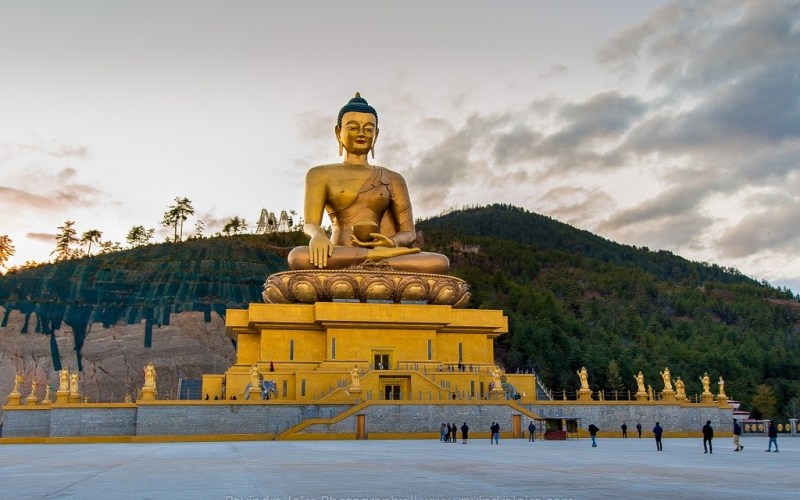BUDDHISM
Bhutan, with its deep-rooted Buddhist traditions and commitment to Gross National Happiness, offers a unique setting for those seeking to immerse themselves in Buddhist teachings and practices. Here’s an overview of the Buddhist teaching experience in Bhutan:

Bhutan is home to numerous monastic centers and monasteries where Buddhist teachings are imparted. Some of the prominent monastic institutions include the Tango Monastery, Cheri Monastery, and Taktshang in Paro. Visitors can attend prayer sessions, participate in meditation classes, and engage with monks to gain insights into Buddhist philosophy.
Bhutanese festivals, known as Tsechus, are vibrant celebrations that showcase religious dances, mask performances, and rituals. These festivals often include teachings by respected lamas (spiritual teachers) and provide a unique opportunity for visitors to witness and learn about Bhutanese Buddhism.
Bhutan offers meditation retreats in serene locations, allowing participants to delve into mindfulness and meditation practices. These retreats may take place in monasteries, nunneries, or peaceful natural settings, providing a tranquil environment for spiritual reflection. Visitors to Bhutan can interact with monks and nuns to learn about their daily lives, studies, and spiritual practices. This interaction often occurs during guided tours of monastic institutions or through arranged cultural experiences.
Dzongs are fortress-like structures that serve as both administrative and religious centers. They often house monastic quarters and temples. Visitors can explore the intricate architecture of dzongs and attend religious ceremonies, gaining a deeper understanding of Bhutanese Buddhism.
Bhutan’s unique development philosophy, Gross National Happiness (GNH), is rooted in Buddhist principles. Visitors can learn about the four pillars of GNH—sustainable and equitable socio-economic development, conservation of the environment, preservation and promotion of culture, and good governance.
Bhutan offers spiritual trails and pilgrimage routes that take travelers to sacred sites, temples, and monasteries. These journeys provide opportunities for reflection, prayer, and a deeper connection to Bhutanese Buddhism.
Some monasteries and retreat centers in Bhutan offer facilities for personal retreats, allowing individuals to spend extended periods in contemplation and study. This option is suitable for those seeking a more immersive and introspective experience.
Dharma talks and teachings by experienced Buddhist practitioners and scholars are organized at various monastic institutions. These sessions cover a range of topics, including Buddhist philosophy, meditation techniques, and the application of Buddhist principles in daily life.
Bhutan provides a conducive environment for those interested in experiencing Buddhism firsthand. Whether through guided tours, meditation retreats, or interactions with practitioners, visitors have the opportunity to explore the spiritual richness of Bhutanese culture and gain insights into the principles that shape the nation’s way of life.
